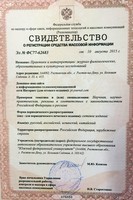
‘COSAS DE RUSSIA’: JOSEPH CONRAD’S CONFESSIONS ABOUT RUSSIA AND RUSSIANS. PART 2
Аннотация
The paper addresses a very controversial subject in Conradian scholarship and criticism: Conrad’s representation of the ‘Cosas de Russia.’ So far, it has been largely (but not necessarily correctly) interpreted as either Russophobia (in his non-fiction) or Russophilia (in his fiction). Conrad himself evaded any clear answer as to his precise stance and its respective background. But his narrative strategies are telling enough. They contain some carefully guarded secrets, but also unintentional confessions. The question therefore is: how much did he really know about Russia and Russians, how familiar was he with Russian culture, language and literature? These issues are explored through a combination of British Cultural, Linguistic and Literary Studies, but also Slavonic Studies. The methods employed are close reading, narratology, deconstruction and contextualization. Apart from Conrad’s novels “Under Western Eyes” (1911) and “The Secret Agent” (1907) his essays “Autocracy and War” (1905) and “Turgenev” (1917) will be used for elucidation. Among the Russian works of fiction studied in comparison to Conrad’s works are Fyodor Dostoevsky’s “Demons” (1871–1872) and “The Brothers Karamazov” (1879–1880) and Ivan Goncharov’s “Oblomov” (1859). The major attention, however, will be directed to Nikolay Gogol’s short stories “Nevsky Prospekt” (1835) and “The Overcoat” (1842) as well as his novel “Dead Souls” (1842). After reconsidering central issues and correcting some misassumptions in literary criticism, the paper attempts to add a few new aspects to the debate by focusing on issues of intertextuality. What emerges from all this is that Conrad’s ‘Cosas de Russia’ represent a kind of hidden master knowledge whose significance still needs to be fully recognized.
Key words: Joseph Conrad; Cosas de Russia; representation of Russian culture, language and literature; intertextuality; comparative studies of English and Russian literature; issues of translation.
DOI 10.23683/2415-8852-2017-3-17-37
 Цитировать:
Цитировать:
Binder Ch.M. ‘Cosas de Russia’: Joseph Conrad’s confessions about Russia and Russians. Part 2 // Практики и интерпретации: журнал филологических, образовательных и культурных исследований. 2017. Т. 2, № 3. С. 17‒37.
Полный текст:
PDFЛитература
Primary Literature
Conrad, J. (1924a). “Turgenev”. Notes on Life and Letters, New York: Doubleday, Page & Company, (1921), Part I – Letters, 45–48. Conrad, J. (1924b). Under Western Eyes, New York: Doubleday, Page & Company (1911).
Conrad, J. (2008). Under Western Eyes [= Oxford’s World’s Classics], ed. by Jeremy Hawthorn, Oxford et al.: Oxford University Press (2003).
Conrad, J. (2012). Na Vzglyad zapada [= Literaturnye Pamyatniki], Moscow: Ladomir, Nauka, 217–474.
Gogol, N. (2004). Dead Souls. A Poem. Translated with an Introduction and Notes by Robert A. Maguire, London et al.: Penguin Books.
Gogol, N. (2008). Die Toten Seelen. Aus dem Russischen von Hermann Röhl, Frankfurt am Main: Fischer Taschenbuch Verlag.
Gogol, N. (1976). The Nevsky Prospect, translated by Rosa Portnova, Letchworth, Hertfordshire: Bradda Books Ltd.
Gogol, N. (1954). “The Overcoat”, Six Great Modern Short Novels, New York: Dell Publishing Co., Inc.
Gogol, N. (2008). Die großen Erzählungen, Frankfurt am Main et. al.: Insel Verlag. Print.
Secondary Literature
Bimberg, C. (2006). Reise nach Moskowien. Russlandbilder aus dem Kalten Krieg, Bochum: Dr. Winkler Verlag.
Binder, C.M.B., Childhood, Food and Fantasy: The Baggins and the Took Side of Life (fortcoming).
Busza, A. (1966). “Conrad’s Polish Literary Background and Some Illustrations of the Influence of Polish Literature on His Work”, Antemurale 10, 109–255.
Durkin, A.R. (2003). “Pushkin and Conrad: From the Povesti Belkina to the Limits of Parody”, American Contributions to the 13th International Congress of Slavists. Vol. 2: Literature, ed. by Robert A. Maguire and Alan Timberlake, Bloomington, Indiana: Slavica, 77–84.
Gillon, A. (1969). “Polish and Russian Literary Elements in Joseph Conrad”, Proceedings of the Congress of the International Comparative Literature Assiciation, ed. by Nikola Banasevic, Belgrade; Amsterdam: University de Belgrade; Swets & Zeitlinger, 685–94.
Jones, S. (1996). “Conrad’s Women and the Polish Romantic Tradition”, Conrad and Poland, ed. with an Introduction by Alex S. Kurczaba [= Conrad: Eastern and Western Perspectives, Gen. Ed. Wiesław Krajka, vol. V], Boulder: East European Monographs. Lublin: Maria CurieSkłodowska University. Distributed by Columbia University Press, New York, 33–59.
Matlaw, R.E. (1963). “Dostoevskij and Conrad’s Political Novels”, American Contributions to the Fifth International Congress of Slavists, Sofia, September 1963. Slavistic Printings and Reprintings 50. Vol. II: Literary Contributions, The Hague: Mouton & Co., 213–231.
Ссылки
- На текущий момент ссылки отсутствуют.
(c) 2018 Christiane Maria Binder
ISSN 2415-8852
Свидетельство о регистрации СМИ Эл № ФС77-62683 от 10 августа 2015 г.
Регистрирующий орган: Федеральная служба по надзору в сфере связи, информационных технологий и массовых коммуникаций (Роскомнадзор)
УЧРЕДИТЕЛЬ: ФГАОУ ВО "Южный федеральный университет".
344006, г. Ростов-на-Дону, ул. Большая Садовая, 105/42,
тел. +7 (863) 218-40-00 E-mail: info@sfedu.ru
Адрес редакции: 344006, г. Ростов-на-Дону, пер. Университетский, 93, к. 8, тел. +7(903) 43-12-321
e-mail: oadzhumaylo@sfedu.ru

Произведения доступны по лицензии
Creative Commons «Attribution» («Атрибуция») 4.0 Всемирная.

